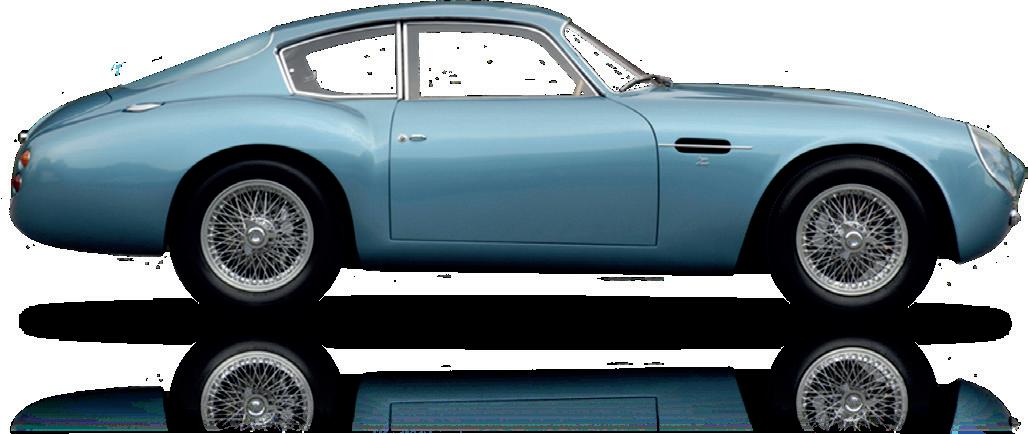
1 minute read
BUILT TO RACE FOR THE ROAD
SPONSORED BY
1987 Mercedes-Benz 190E 2.3-16 Cosworth

Although the racing versions of the 190E have become more recognisable for their efforts in touring car racing, particularly the DTM, the car was originally supposed to be a rallying effort. With the advent of four-wheel drive in the sport, the Three-Pointed Star shifted its focus to Group A racing. Cosworth worked its magic on the M102 four-cylinder engine with a bespoke alloy head, dual overhead camshafts and four valves per cylinder, resulting in 183bhp. This example has had few owners, and has been exactingly restored and upgraded along the way. Rarely, it also sports a Getrag dogleg manual ’box.
1994 Lancia Delta HF Integrale Evo
Lancia was in the right place at the right time when Group A was promoted to being the main rallying category after Group B’s demise. While its competitors fought to keep Group B going, Lancia got on with perfecting the Delta into a dominating rally car. It succeeded, taking the manufacturers’ title six years in a row between 1987 and 1992. The need to keep on top of the opposition led to ever more power for the Integrale road cars, as shown in the Evo. This is one of 220 Giallo Ginestra cars, and was imported to the UK in 2001. It’s been in the same family ownership for more than 20 years.

1978 Ferrari 308GTS Sprint Pack

GT racing was a potent lure in the 1970s, and Ferrari made the Sprint Pack for the 308GTS, derived from the Group 4 Specification Kit. Additions included Borgo high-compression forged pistons, special camshafts, ANSI sports exhaust and alternative carburettor settings. This is one of just four believed Sprint Pack cars (+40bhp) in the UK, and the only GTS, all of which is detailed in invoices from Maranello Concessionaires. It’s the only known 308 ever to leave the Ferrari factory with full leather interior, as ordered by its first owner, the 7th Marquess of Bristol, John Hervey (then, Earl Jermyn).
1973 Porsche 911 2.7 RS Touring
Porsche’s Group 4 assault needed a special model, and what would be created would redefine sports cars and set up a legacy that still stays true to the firm’s guiding principles. Not only did the RS 2.7 have more power (207bhp) than the standard 911s, but it was 960kg lighter thanks to the removal of almost anything that didn’t connect man, machine and road.
The result was the fastest German production car at that time, capable of 0-62mph in 5.8 seconds. While just 500 road cars were needed to let Porsche go racing, 1580 were built. The Touring had some creature comforts, but kept a raw, immersive experience.








